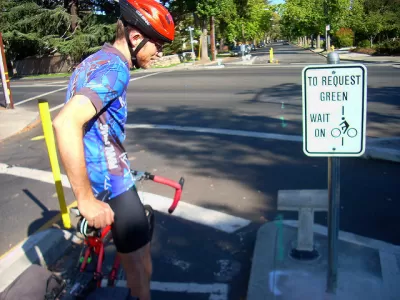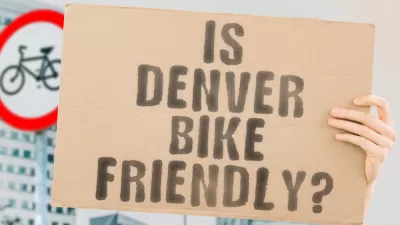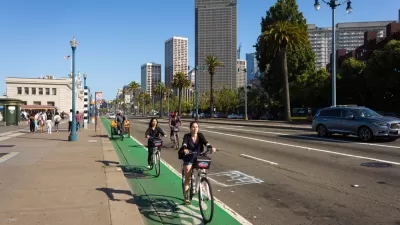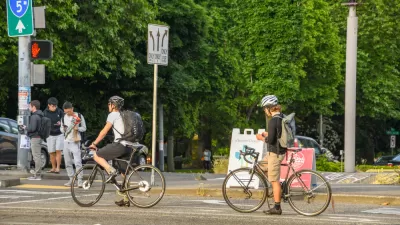Colorado is the latest state to make it legal for people on bikes to treat stop signs like yield signs when no cars are in the intersection.

Colorado Governor Jared Polis signed the “Colorado Safety Stop” into law on April 13, 2022, making it legal for people on bikes to treat stop signs as yield signs and treat stop lights as stop signs, according to an article by Bicycle Colorado.
The article cites data that shows the Safety Stop—known in bicycle and planning circles as the Idaho Stop—reduces collisions involving people on bikes and automobile. Delaware, which adopted a similar law in 2017, has seen a 23 percent drop in collisions involving bicycles at stop sign controlled intersections. Researchers from DePaul University published a study in 2016 that also supported Idaho Stops for the safety of people on bikes.
Bicycle Colorado also provides additional information on the new law, as listed in the source article:
- Younger bicyclists may perform the maneuver if an adult is present.
Bicyclists can yield and then proceed through stop sign-controlled intersections at up to 10 miles per hour. - Intersections where bicyclist-specific lights or signs are present that prohibit the maneuver are exempt from the new law.
- The bill defines “low speed conveyances” in Colorado law. These are small profile, low-speed vehicles that people use for transportation and recreation, including bicycles and electric bicycles, electric scooters (not including mopeds), and wheelchairs.
The Colorado Legislature approved the law in March 2022, paving the way for this week’s historic bill signing. Bicycle Colorado says the law has been in the works for years.
The state of Colorado now joins Idaho, Delaware, Arkansas, Oregon, Washington, North Dakota, Utah – 2021, and Oklahoma among states where the Idaho Stop is the law of the land. California could have been on the list, but Gov. Gavin Newsom vetoed AB 122 in 2021.
FULL STORY: The Colorado Safety Stop is the law of the land

Alabama: Trump Terminates Settlements for Black Communities Harmed By Raw Sewage
Trump deemed the landmark civil rights agreement “illegal DEI and environmental justice policy.”

Planetizen Federal Action Tracker
A weekly monitor of how Trump’s orders and actions are impacting planners and planning in America.

How Atlanta Built 7,000 Housing Units in 3 Years
The city’s comprehensive, neighborhood-focused housing strategy focuses on identifying properties and land that can be repurposed for housing and encouraging development in underserved neighborhoods.

In Both Crashes and Crime, Public Transportation is Far Safer than Driving
Contrary to popular assumptions, public transportation has far lower crash and crime rates than automobile travel. For safer communities, improve and encourage transit travel.

Report: Zoning Reforms Should Complement Nashville’s Ambitious Transit Plan
Without reform, restrictive zoning codes will limit the impact of the city’s planned transit expansion and could exclude some of the residents who depend on transit the most.

Judge Orders Release of Frozen IRA, IIJA Funding
The decision is a victory for environmental groups who charged that freezing funds for critical infrastructure and disaster response programs caused “real and irreparable harm” to communities.
Urban Design for Planners 1: Software Tools
This six-course series explores essential urban design concepts using open source software and equips planners with the tools they need to participate fully in the urban design process.
Planning for Universal Design
Learn the tools for implementing Universal Design in planning regulations.
Jessamine County Fiscal Court
Caltrans
Institute for Housing and Urban Development Studies (IHS)
City of Grandview
Harvard GSD Executive Education
Toledo-Lucas County Plan Commissions
Salt Lake City
NYU Wagner Graduate School of Public Service





























